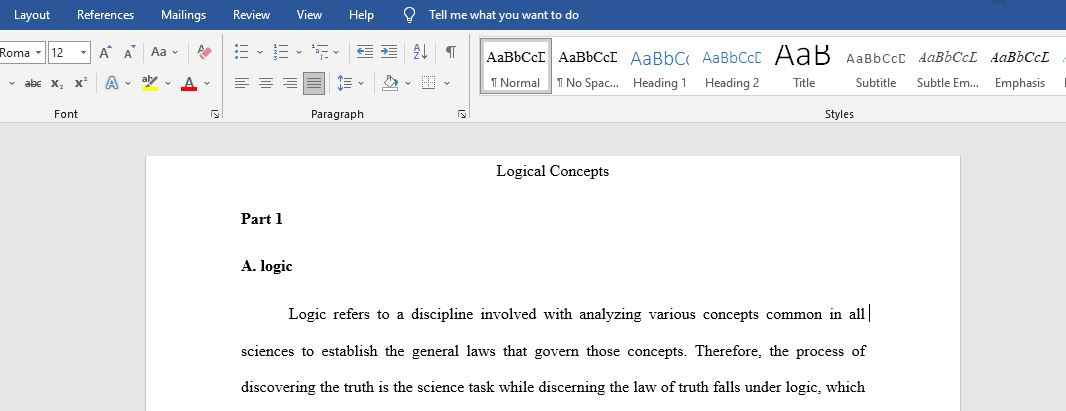Introduction to logic and study of argument.
the textbook used is Intro to Principles of Reasoning (Logic)
1. Define these Logical Terms or Concepts (in your own words and from the book, not
using the internet):
a) What is logic?
______________________________________________________________________
_
b) Deductive and Inductive:
________________________________________________________
c) Proposition: Simple Proposition and Compound Proposition:
____________________________
d) Inference: Immediate Inference and Mediate Inference:
________________________________
e) An Argument: Simple and Complex:
_______________________________________________
f) Premise or Premiss and Conclusion:
_______________________________________________
g) Fallacy: Informal and Formal:
____________________________________________________
h) What is an Argument?
_______________________________________________________________
i) What is a fallacy?
Part 2
Logic, as a major subfield within philosophy, is the study and analysis of (structured) arguments
and an argument must have two things: the premiss or premisses and the conclusion or
conclusion. An argument can have one premiss or many premisses, and it can also have a
conclusion or many conclusions. An argument that has one conclusion regardless of the number
of its premisses is a "simple argument," but the argument that has more than one conclusion or
many conclusions is a "complex argument."
Please Clearly Identify the Premiss(es) and Conclusion in the following Argumentative
Passages:
1) Communism has failed, because what it tried to accomplish was against human nature.
2) Time heals all wounds. Time is also money. Hence, money heals all wounds.
3) Human cloning is fundamentally wrong and evil. So human cloning is something that needs to
be approached with utmost carefulness to avoid creating a monster.
4) I like the way we were looking at each other yesterday at the library. So I have concluded that
we are going to do well in this logic course.
5) Film stars are celebrities in most societies. Halle Barry is a film star in America. As a result,
Halle Barry is a celebrity in American society.
6) A structured and good argument must have both the premiss(es) and a conclusion. Both
deductive and inductive arguments have premisses and conclusions. Therefore, both deductive
and inductive arguments are structured and good arguments.
7) Every law is a necessary evil, and every law is an infraction of peoples' liberty. Thus, every
law should be obeyed for the good of everyone.
8) Do not judge other people, for we are all sinners before God.
9) Expectant mothers should never use recreational drugs, since the use of recreational drugs can
jeopardize the development of the fetus.
10) Since the good is that which furthers a person's real interest in life, it follows that human
beings will do what is necessary for themselves in order to advance their real interests.
Answer preview:

word limit:936
